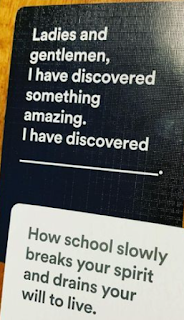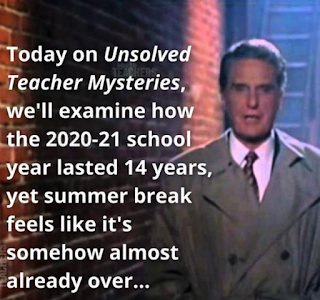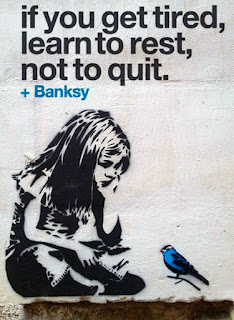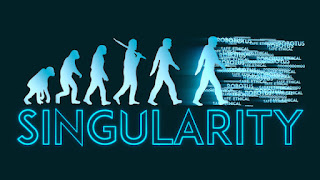Wired had an insightful piece on diversity theatre in a recent issue that exposes the organizational lie behind equity programs trotted out by management to give the appearance of caring about current social issues.
“Diversity theater creates a sense of dissonance: Workers have to represent the company publicly while feeling victimized by it privately; they must identify shortcomings but are punished for acting on them.”
The frustation felt by people of colour who take on equity management roles only to discover that they aren’t allowed to be critical of anything their employer does casts a harsh light on the game of appearing to care as a marketing promotion. Actually caring and the systemic change it would prompt is something most organizations are unable or unwilling to do because most organizations exist as a result of some very one sided history, and no one is willing to hand back their systemic privalege.
This isn’t just as private company gambit, public services are in the same boat. Governments formed on the back of economic imperialism aren’t willing to move from that position of privalege and dominance. The primarily white, heteronomative, neurotypicals who roost in organizational management positions are more than happy to spend a pitance on theatrical appearances but would never risk their privaleged positions by pushing for true institutional change.
One of the thrills (for me at least though many others don’t seem to be feeling it) in teaching is helping a student in less than ideal circumstances rise above their socio-economic station and get onto a pathway that best reflects their potential. In the past year I’ve seen the public educaiton system in Ontario, already under attack from a hostile government, convulse under the weight of a mismanaged health emergency. The people to blame for this exist at the highest levels of government and, in this particular government’s case, have been ushered in to office by a misled electorate who have given them the power to deconstruct the few remaining equity processes in our public education system. When they couldn’t force the system to throw its least privaleged students under the bus, they simply leveraged a pandemic to do it for them; and the political organizations standing against them in public education capitulated in a panic.
 |
| I’m not so sure that it did any more. COVID has been the hammer Ford wished for – everyone else in education has been outsmarted by the virus but Ford seems to be leveraging it. |
Theatre is a great way to hammer home inequity while appearing to care. COVID theatre is the current weapon of choice. I just learned that we are doing quadmesters again in the fall. It won’t matter that all staff and most students will be vaccinated by then, it’s easier to look like you care by throwing a radically inequitable schedule at students and staff and then sitting back to watch it mulch them, all the time saying that it shows how much you care about their safety.
We’re facing an unprecidented number of failures in school this year. I have strong students who have simply given up and fallen silent, and my heart is broken for them. I’m willing to bet these students in particular are in the middle of family economic crises with parents laid off due to the pandemic, and/or the loss of family members, and/or depression from the lack of genuine social contact for over a year now. Even with all that happening, I’m hearing from even the strongest students that they are being run into the ground by twelve plus hours a day of maths work as teachers desperately try to jam 110 hours of complex instruction through the key-hole of emergency remote learning in wildly inequitable situations. STEM is for the rich and privaleged who have the time and space to keep up with the workload.
Many parents of students with IEPs have told me of the crisis their children are experiencing at the hands of a system determined to play the COVID-theatre of business-as-usual in education. Watching (usually young, energetic teachers looking for contract sections) pipe up about how there are real advantages to quadmestered teaching is laughable, but one of the best ways to get into a system is to help it support its myths. This slight of hand is heartbreaking and deeply personal because I’m a parent of a student with special needs. When your child’s IEP specifically states they need extra time to work on material and you see teacher after teacher running them off the treadmill of quadmestered/reduced time/accelerated learning, you have to wonder where everyone’s heads are at. Compassion should lie at the heart of equity but it seems that compassion is in short supply over a year into this pandemic.
Last spring we magically passed everyone even though the system lurched into fully remote emergency learning completely unprepared. After being run through face to face learning only to be pulled out again and again this year when school driven pandemic spread was proven to be the engine driving our provincial disaster, the validity of ‘credits’ in the 2020/21 school year is, at best, questionable.
Even when we were face to face (in masks, distanced) students were still expected to spend half of their course learning remotely. The other half had them in barely functioning face to face cohorts where they were being taught in madly restricted classrooms by exhausted teachers trying to be in two places at once. In the insane year I’m just staggering to the end of I never once had a covering teacher, either online or in person, who was qualified to teach my subject. I never once even had a technology teacher covering me in live classes so that students could keep using tools and equipment in what little face to face instructional time they did have.

Quadmestered face to face teaching meant two 2.5 hour continuous instructional periods everyday where, if I had to duck out to use the washroom, I was putting my students at risk leaving them with a teacher (sometimes they weren’t even teachers) who were unqualified to monitor safety in the room. Safety-theatre is another one of these smoke and mirror games organizations like to play where (as long as it doesn’t mean any extra work for them) they’ll put you in a position where you’ll do extra to keep things working to the point of hurting yourself, like I did this year.
Each of those 2.5 hour face to face instructional periods without qualified relief wasn’t the only ball I was juggling. Simultaneously I was also setting up remote learning and monitoring that, because every teacher I was partnered with was unqualified to teach my subject area and usually took that opportunity to fade away and leave me trying to be in two places at once. Students in my current remote class don’t know who our elearning support teacher is because they’ve never seen her. Multiple calls to my union was met with silence and I’ve since stepped back from the position of CBC rep because I’m not sure I actually have a union anymore.
Theatre runs thick in our union too. This spring at AMPA, the yearly provinical gathering of regional representatives, members of colour were kicked out of the online event for having virtual avatars on their accounts that upset the always-white provinical management. White supremacy, as described on those avatars, wasn’t an over the top suggestion but it hurt the feelings of the delicate white people in charge and so they banned those members of colour. We’ve since had it explained to us (multiple times by old white people in charge) that those members broke the parlimentary rules everyone agreed to abide by and that’s why they were removed. They then voted in another white president, though it is a woman and we’ve only had two of those in a century, so little steps. The woman of colour who could lead us into a more equitable future was convulsed out of contention as this old Canadian organization does what old Canadian organizations do best: cling to colonial prejudices when it best suits the people running them.
In reference to the attempts to address systemic racism in one of the biggest boards in the proivnce, a member of colour said they felt like OSSTF provincial was weaponizing our own consitution against us. I’ve been seeing that side of OSSTF since 2012. Maybe one day we’ll put aside the equity theatre and actually be equitable. Any mention of this online whips senior (white) union management into a, “you’re a union basher!” stance. I can assure you I am not, but I’m no fan of the status quo and they shouldn’t be either. Instead of weaponizing an archaic paliamentary system that keeps the status quo intact, perhaps we should be looking for ways to rejig the system so it’s actually more equitable and representative of all members. That isn’t just something my union should do, it’s something our not-so-representative Canadian governments should do too.
The hair-trigger decision to go with quadmestered classes in the fall even though we’re not sure where we’ll be by then and case numbers continue to fall even as the province opens up thanks to a vaccination system that is finally working is, at best, short-sighted. It plays the COVID theatre game by showing how serious everyone is about safety while ignoring the gross inequities of quadmestered scheduling. It also happens to reuse all the planning done last year but I’m sure that easy way out wasn’t what prompted the decision. Someone decided that students with special needs or the ones under durress at home can burn for another inequitable, unsustainable quadmestered school year for valid, pedagogical reasons, I’m sure.

Meanwhile, front line workers will get dunked into another year of unsustainable and inequitable work overload. Attempting to be in two places at once (for me at least, for many teachers with smaller classes it’s an easier ride) is absolutely harrowing. COVID theatre will also demand that everyone wear masks in a one-size-fits-all organization in poorly ventilated rooms not because vaccinations don’t work (they do), but because it’s important to look like we care.
We’ll probably have a lot of well-meaning (is it well-meaning if it’s theatre?) equity PD again this year even as we roll out a schedule that (once again) systemically attacks students with special needs or who lack the privalege needed to effectively leverage remote learning. It’ll once again be left to individuals on the front lines to make up for this systemic failure by trying to bridge the pedgagocial gaps we’ve opened up. The theatre of cruelty isn’t over yet.
 |
| It’s not over – it may never be over. That lack of hope is corrosive. Some leadership that embraces hope would be… magical. |
from Blogger https://ift.tt/3qh9WXB
via IFTTT
 I was just reading Doug Peterson’s Blog about how a number of edublogs are looking at the Amanda Todd story. I can understand the urge, but I’m coming at this from a different angle than most.
I was just reading Doug Peterson’s Blog about how a number of edublogs are looking at the Amanda Todd story. I can understand the urge, but I’m coming at this from a different angle than most.





















